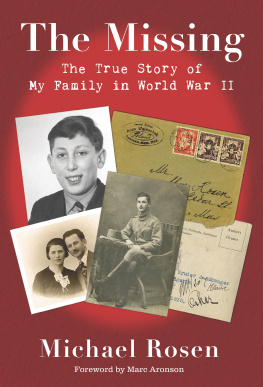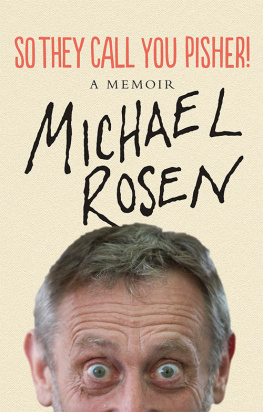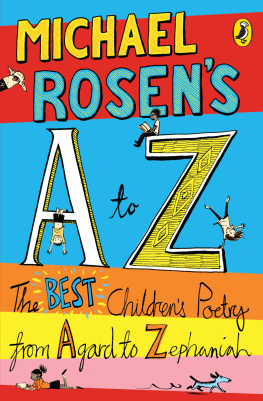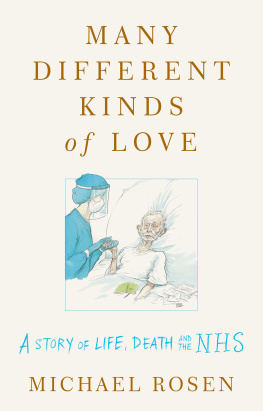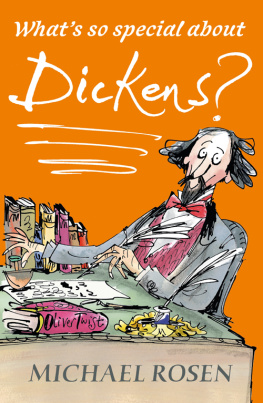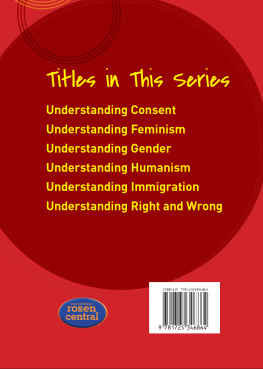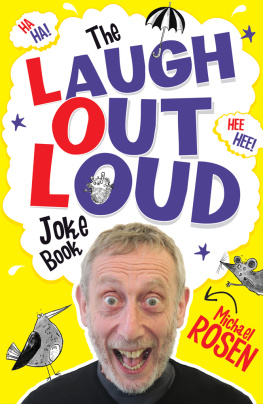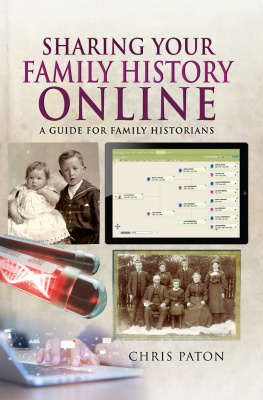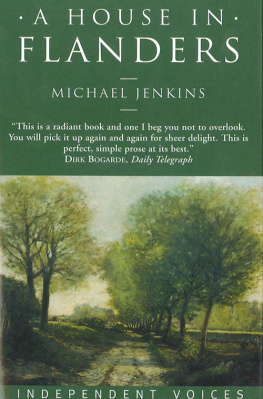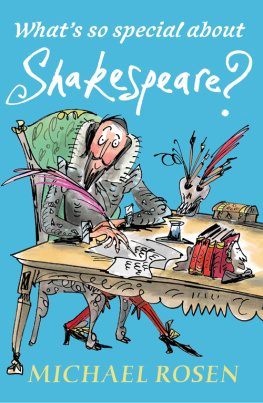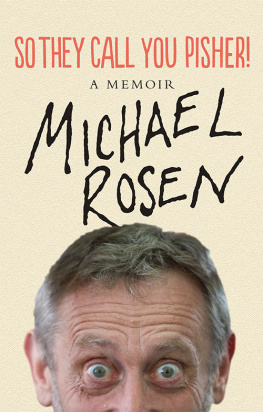
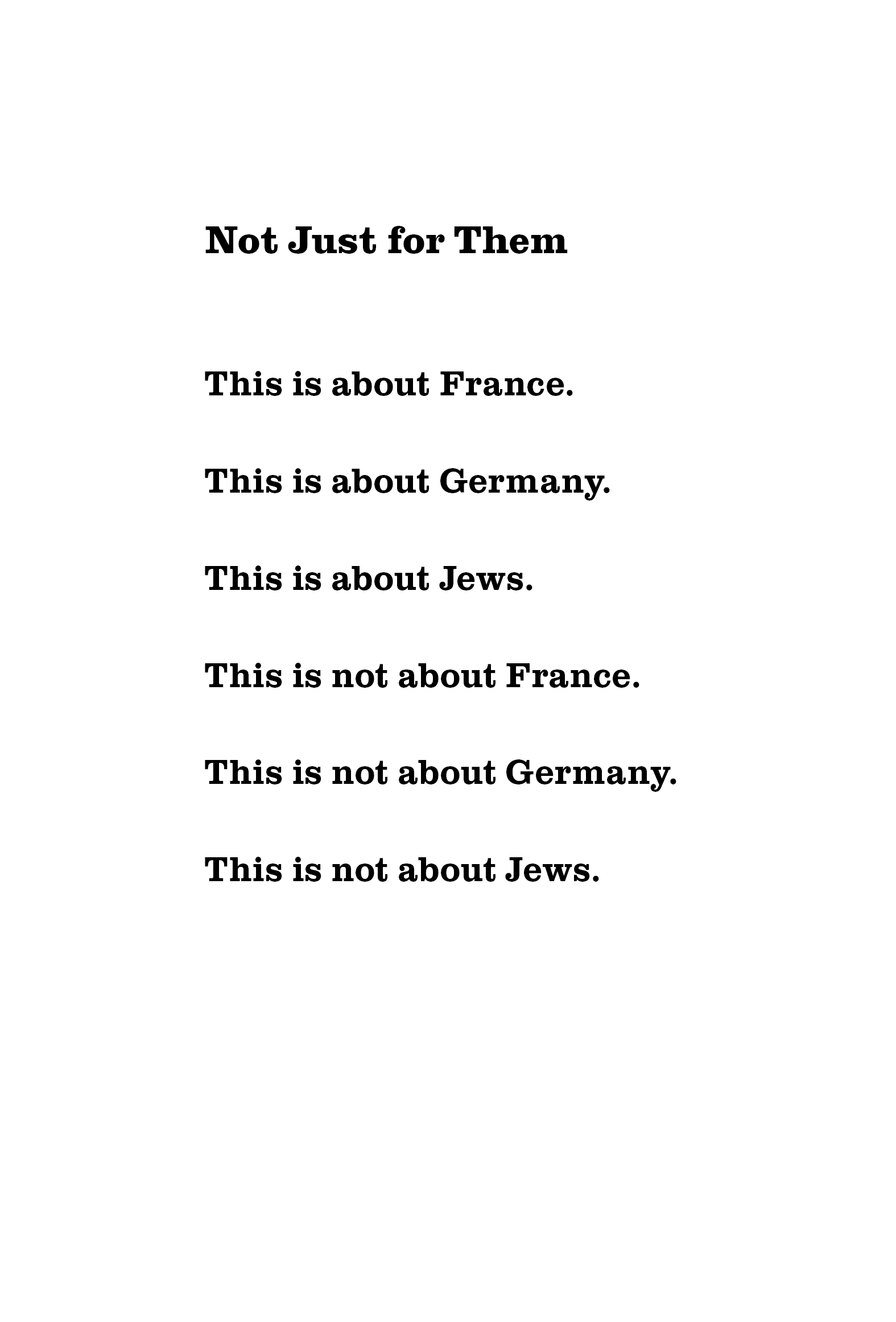
This story is about things that happened to my family a long time ago, back when photos and films were in black and white. But when I think about it, my relatives were refugeesa lot like the people you may have seen on the news recently.
Because of the events of the Second World War, they were forced to run: to flee and hide. When I turn on the TV now, eighty years later, I see thousands of families that have been forced to run from new wars, driven into hiding and sometimes losing their lives.
So I hope this book becomes part of a bigger conversation about the refugee crisis. About how to find fair and decent ways of helping people like my relatives.
Michael Rosen

I was standing in a synagogue in Prague with my sons and my wife, scanning the walls, when I realized what I was seeing. The Pinkas Synagogue lists the names of the Jews of the area who were killed by the Nazis in the Holocaust. Line after line of Czech and German names, dizzying lines of names. And then a few caught my eye, names Id seen on our family tree, relatives my mother mentioned in a quiet voice, in passinglost. All I know of them are the names on the wall, the names in our family history. So many of us have stories like thatancestors we know of, but maybe only a name, or a place of origin, or a fragment of a family story. Whether it is someone who was brought to America from Africa, or fled from a war and changed a name, or entered without papers and did not want to be traced, or was murdered in a concentration camp, we have names without history, or family history without names.
Michael Rosen faced the same dilemma, but he found two pathways to connect with those missing relations. Through careful and painstaking detective work, he did manage to learn about the French and Polish relations he lost to Hitlers death camps. That is one kind of connection, and today, with DNA research and the many sites and organizations that have tools to help with genealogical researchas well as persistence and luckwe can sometimes add whole branches to our family histories. But more than a historian, Michael is a poet. And so in his poetry, his command of words, he could invoke the dead, bring them, and his search for them, to life. He shows us that we need not be defeated by the loss of documents, trails that turn cold. We have the power, now, to imagine, to create, a connection to that missing past.
Within the Pinkas Synagogue in Prague is a permanent exhibition of the art created by children in the Terezn concentration campmost of those children were later sent to Auschwitz to die. But we can share their dreams and fears and hopes because Friedl Dicker-Brandeis was an artist who believed in encouraging young peoples creative work and was in Terezn. She gave young people the tools, and the time, to speak through their images. Those images reach out to us, and we can reach back with our creationsas Michael did when he felt his relatives speaking through letters and photographs and he replied with poems.
I see Michaels book as a set of beginnings offered to all of us. He models in his journey the challenges of seeking information where there are blanks. We build a bridge through research and detective work. And he models in his poetry a bridge to the past we can all build through art, not only with words, but with images, music, and dance. We build a bridge in imagination and empathy. We can make the past live for us, both by delving into it and by expressing it through art. That is the gift this book offers.
Marc Aronson
Rutgers University
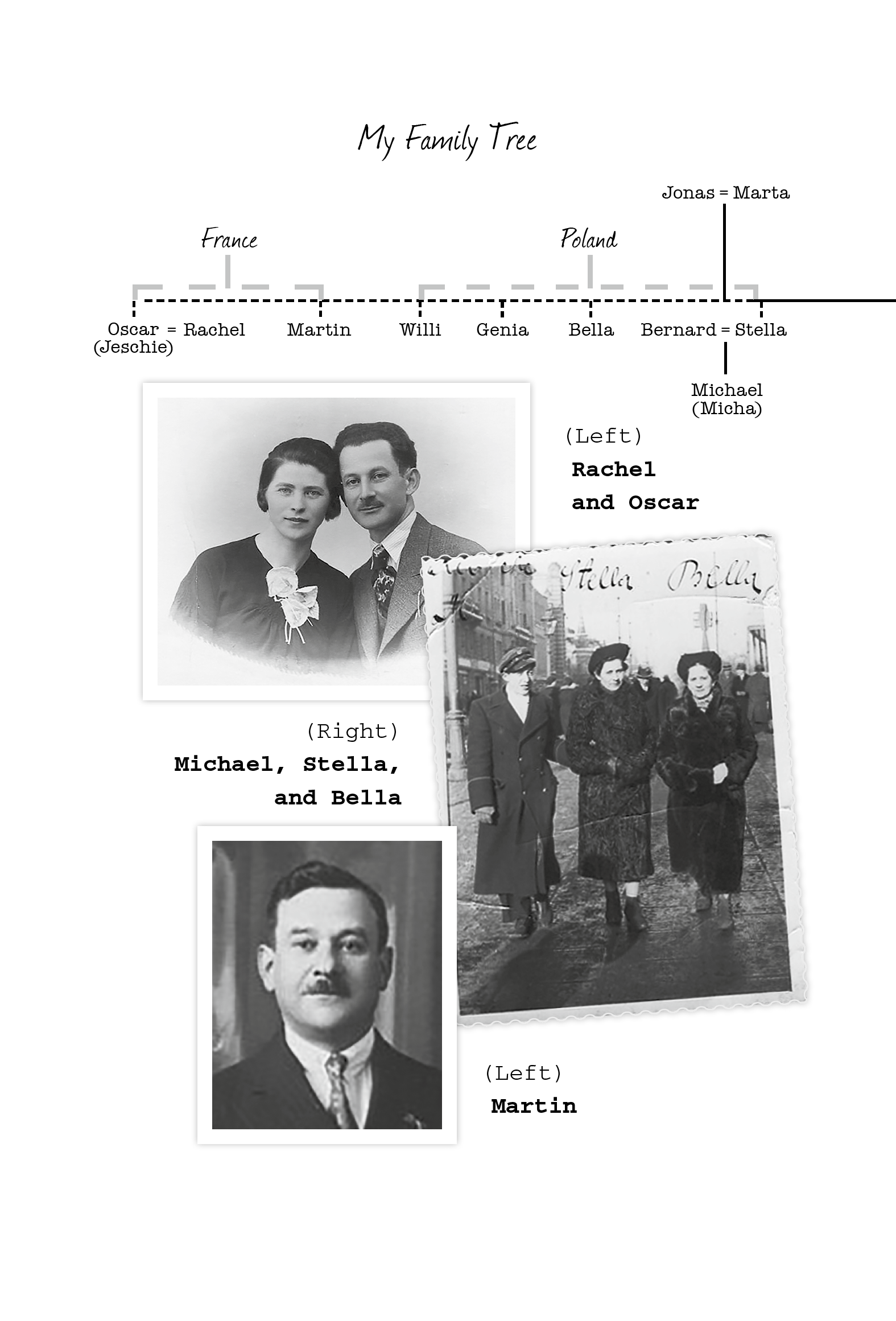
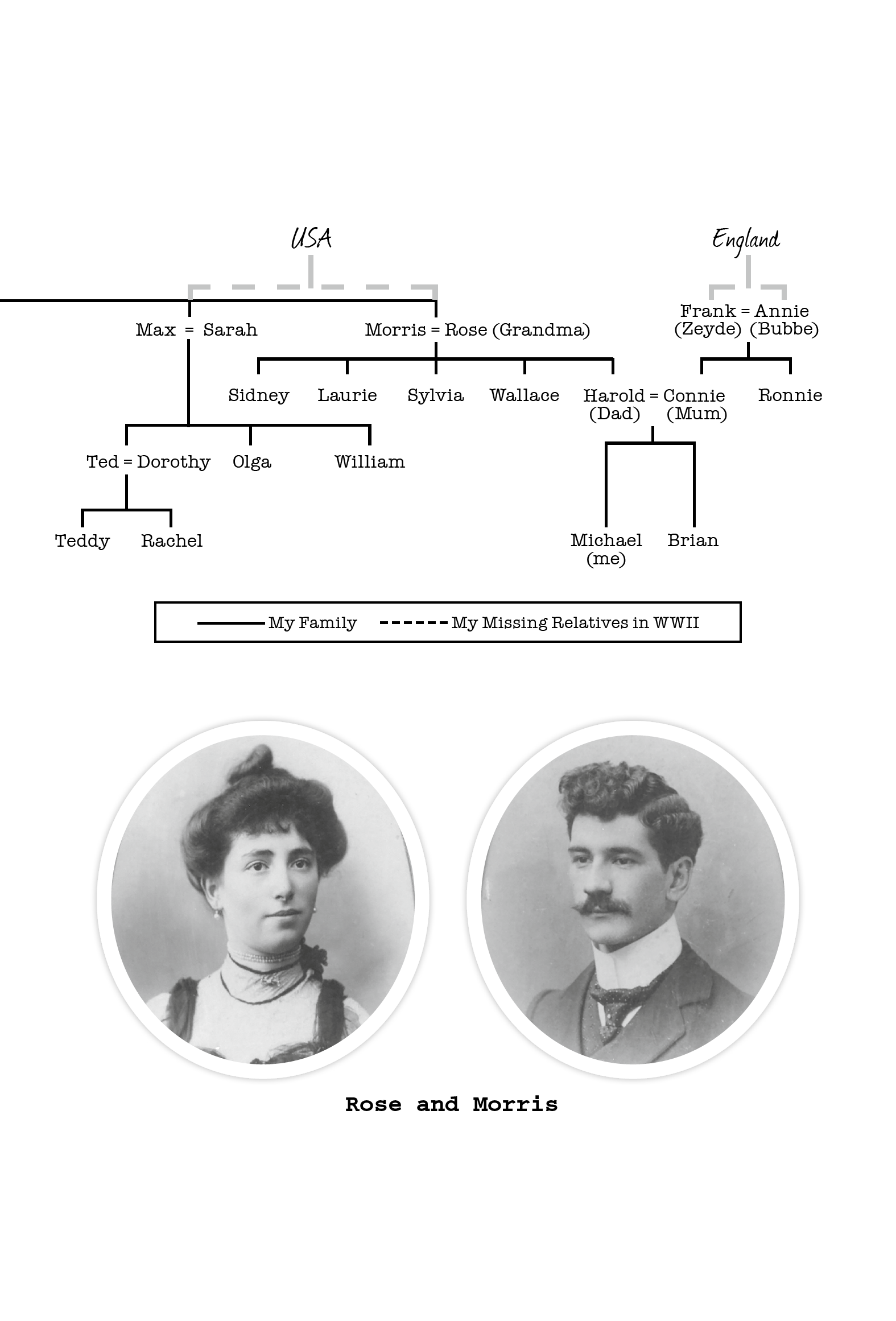
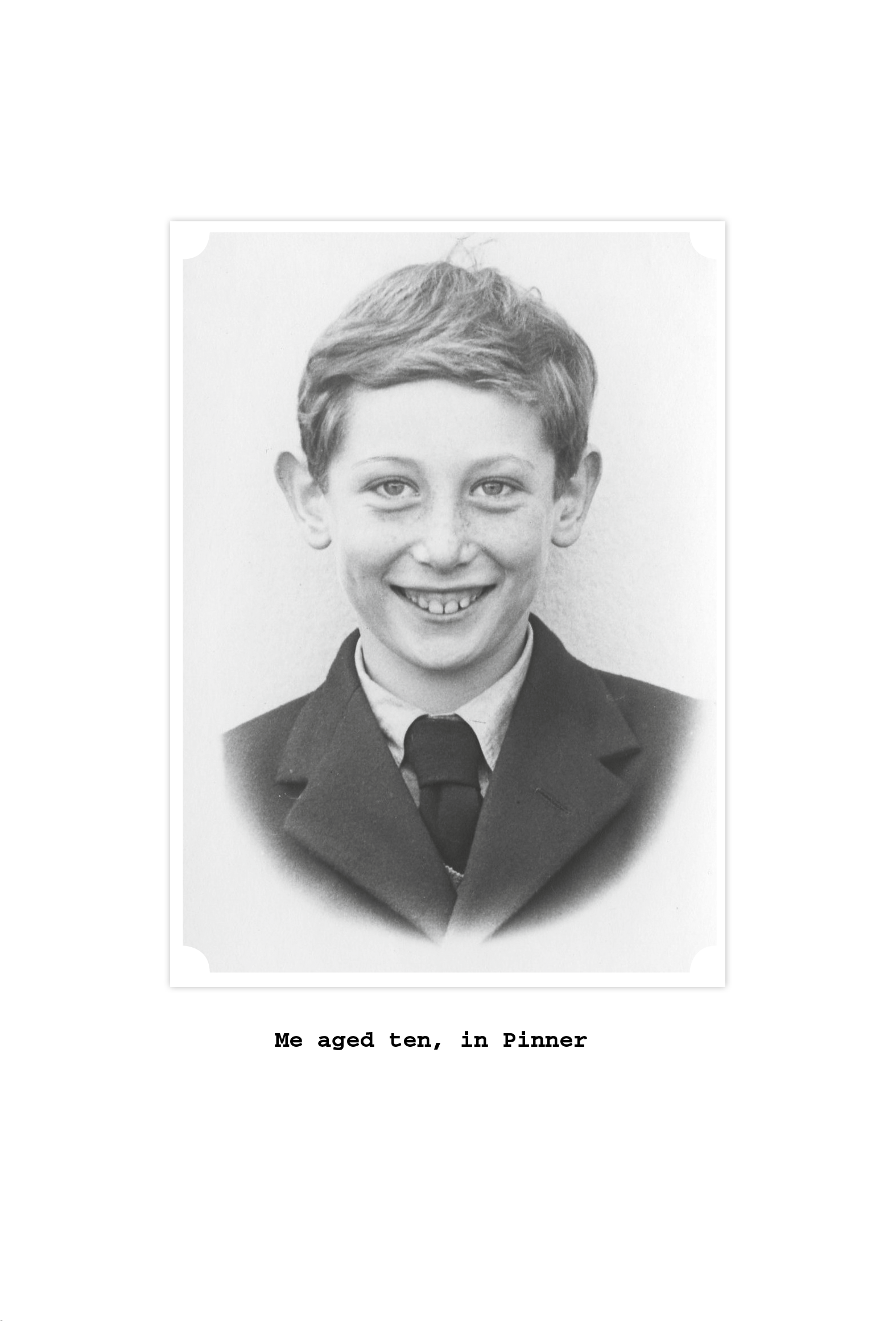

I grew up in a peaceful sort of a place called Pinner, to the north of Londonfull of people who caught the train to the city in the morning and came back only in the evening.
My family lived in a flat over a shop: me; my mother, Connie; my father, Harold; and my brother, Brian. In the evenings, I played in a stony alleyway at the back of the shop, and every day I walked across the Memorial Park to school with my friend Harrybo. (His real name was Brian Harrison, but we all called him that.) He and I used to talk about wild animals, insects, the books we had readand radios. He was mad keen on old radios: he liked to take them apart and put them back together.
Sometimes grown-ups talked about the War, and they always meant the Second World War. At the time, it seemed to me that the War existed only in the stories they told. I knew a bomb had landed in a park near where we lived. One bomb. That was it.
But quite a few of our dads had been in the army. My dad was American, so he had been in the United States Army. He still had some of his uniform and gear: a cooking pan, a special kind of spade called an entrenching tool, and little brass badges saying US ARMY . I loved listening to his stories about his time as a soldier, and I loved the way he put on an exaggerated American accent when he told them.
Dad wasnt ever in a battle. He was sent out to Berlin and told to write reports on the armys time there, so he went round the different bases to find out what was going on. One colonel thought that my dad had come to spy on himto see if he was doing anything he shouldnt have been.
Do you like mushrooms? asked the colonel.
I do and I dont, said Dad.
I can give you as many as you want, came the reply, and he took my dad down into the old bomb shelters under the streets... where he had built a mushroom farm. He was using the mushrooms as a bribe so that Dad wouldnt put anything about it in his report.
Thousands of mushrooms! Dad would say. Right there, in the middle of a bombed-out city. People were starving, living in cellars, under the rubbleand he was growing mushrooms!
I would imagine that.
Another time, a friend of my dads wanted to know what had happened to a colleague who had worked at the Berlin Natural History Museum. It was midwinter, with deep snow everywhere, but my dad still set out to find the museum. As he drew nearer to where it should have been, he could see ruined bits of building sticking up out of the snowand in between the broken towers, there was the skeleton of a giant dinosaur.
I would imagine that, too.
There was nothing like that round our way. Though one day, a boy came to school and said that he had found an old bomb shelter in the Memorial Park. So when it was getting dark, my friends and I went and levered off the metal cover, then climbed down the ladder into the shelter.
There were beds still with blankets on them and bits of rubbish on the floor. We got scared standing there in the dark and climbed outbut I think maybe we didnt put the metal cover back properly, because, not long afterward, the park wardens put earth over the top of it.

